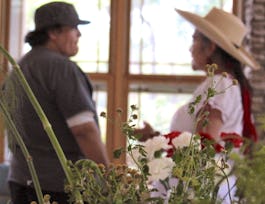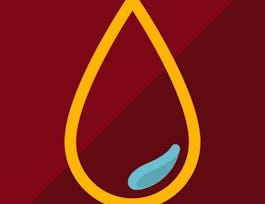There is strong demand for alternatives to pharmaceuticals for a variety of common illnesses due to concerns of safety, efficacy, and a desire for more “natural” products. Despite this growing interest, “conventional” healthcare providers may have little to no knowledge about herbal medicines, which is further compounded by the sometimes misleading information in the media and on the internet. This course provides the necessary background for providers to begin to incorporate herbal medicines into their practice, particularly in regards to their therapeutic properties, efficacy (or lack thereof), and safety concerns, including quality control and potential adverse effects.


Herbal Medicine
This course is part of Integrative Health and Medicine Specialization
Taught in English
Some content may not be translated

Instructor: Amy Taylor, MD
35,821 already enrolled
Included with 
Course
(772 reviews)
99%
Recommended experience
What you'll learn
Discuss the role of herbal medicines in healthcare overall as well as your potential role.
Discuss overall botanical actions and methods for creating botanical preparations.
Assess patients, including potential for herb-drug interactions and other potential contraindications and considerations for special populations.
Educate patients on quality control and safety issues.
Skills you'll gain
Details to know

Add to your LinkedIn profile
12 quizzes
Course
(772 reviews)
99%
Recommended experience
See how employees at top companies are mastering in-demand skills

Build your subject-matter expertise
- Learn new concepts from industry experts
- Gain a foundational understanding of a subject or tool
- Develop job-relevant skills with hands-on projects
- Earn a shareable career certificate


Earn a career certificate
Add this credential to your LinkedIn profile, resume, or CV
Share it on social media and in your performance review

There are 7 modules in this course
What's included
11 videos5 readings1 quiz2 discussion prompts
What's included
5 videos6 readings4 quizzes1 discussion prompt
What's included
9 videos3 readings2 quizzes1 discussion prompt
What's included
7 videos12 readings2 quizzes1 discussion prompt
What's included
3 videos7 readings1 quiz
What's included
1 video1 reading1 peer review
What's included
5 videos9 readings2 quizzes1 discussion prompt
Instructor

Offered by
Recommended if you're interested in Patient Care

University of Minnesota

University of Minnesota

University of New Mexico

University of Minnesota
Why people choose Coursera for their career




Learner reviews
Showing 3 of 772
772 reviews
- 5 stars
88.11%
- 4 stars
10.20%
- 3 stars
0.77%
- 2 stars
0.25%
- 1 star
0.64%
New to Patient Care? Start here.

Open new doors with Coursera Plus
Unlimited access to 7,000+ world-class courses, hands-on projects, and job-ready certificate programs - all included in your subscription
Advance your career with an online degree
Earn a degree from world-class universities - 100% online
Join over 3,400 global companies that choose Coursera for Business
Upskill your employees to excel in the digital economy
Frequently asked questions
This course has been designed to meet Minnesota Board of Nursing continuing education (CE) requirements for 15 contact hours and may be eligible for CE credit from other professional boards that allow self-documenting of continuing education activities. It is your responsibility to check with your regulatory board to confirm this course meets your local requirements and, if necessary, to provide them with the certificate of completion you get if you pay for and fulfill all the requirements of this course.
Access to lectures and assignments depends on your type of enrollment. If you take a course in audit mode, you will be able to see most course materials for free. To access graded assignments and to earn a Certificate, you will need to purchase the Certificate experience, during or after your audit. If you don't see the audit option:
The course may not offer an audit option. You can try a Free Trial instead, or apply for Financial Aid.
The course may offer 'Full Course, No Certificate' instead. This option lets you see all course materials, submit required assessments, and get a final grade. This also means that you will not be able to purchase a Certificate experience.
When you enroll in the course, you get access to all of the courses in the Specialization, and you earn a certificate when you complete the work. Your electronic Certificate will be added to your Accomplishments page - from there, you can print your Certificate or add it to your LinkedIn profile. If you only want to read and view the course content, you can audit the course for free.

